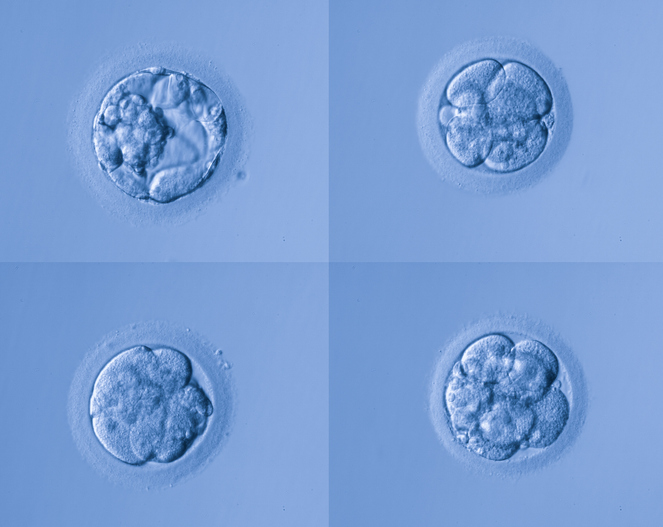

When you’re considering Cofertility’s Split program, it’s natural to wonder where the process ends—what would actually happen to your eggs after you’ve donated? After all, you’re probably looking into this option with the hope that a family may be able to grow their family with your help. So how does that all happen?
How to donate eggs
First things first: if you decide that you want to help intended parents grow a family, you can expect to go through a pretty rigorous screening process. You’ll answer a lot of questions and go through a medical assessment
Typically you can expect the process to look like this:
- Application and Interview: You will share more information about yourself, including background on your health and whether you’ve donated your eggs or been pregnant in the past. We will also gather information about your education and family so we can share this with the intended parents down the line.
- Medical testing: If your initial screening indicates that you are a good candidate for Split, once you match with intended parents, you will be tested for diseases such as HIV and hepatitis.You may be tested for genetic conditions such as cystic fibrosis. Importantly, you will also undergo a psychological evaluation to ensure that you’re participating in the program willingly and that you’re prepared for the process ahead.
- Medications: If you go through with the procedure, you will take injectable medications to stimulate your ovaries to produce more eggs. You’ll make several visits to a fertility clinic over a period of 10 to 14 days so the doctor can perform ultrasounds and monitor your ovaries.
- Egg retrieval: The fertility specialist will use anesthesia and retrieve eggs from your ovaries with a needle and special suction device. This is considered a minor surgical procedure that can be done right at a fertility clinic under light anesthesia. It’s quick too — the whole process can take as little as 30 minutes.
So what happens to my eggs after I donate them?
So what happens to my eggs after the egg retrieval? The eggs you’re donating will now move on to be fertilized and hopefully help grow a new family.
Here’s how your eggs will be used to help intended parents:
- Fertilization via IVF — After eggs are retrieved from your ovaries, an embryologist will use them to start the process of in vitro fertilization — more commonly known as IVF. The fertilization, or insemination process, is performed in a lab and involves adding sperm to the eggs. The fertilized eggs will then develop in the lab and hopefully become embryos, the building block of a developing baby.
- Embryo testing — Some intended parents may opt for preimplantation genetic testing (PGT) to be done on the embryos. This process checks for chromosomal abnormalities such as extra chromosomes or missing chromosomes. This process can also flag genetic abnormalities controlled by a single gene, like cystic fibrosis or BRCA mutation.
- Embryo transfer — If the fertilization process is successful and the embryo continues to divide after fertilization, it’s now ready to be transferred into the uterus of an intended parent or gestational surrogate. This step of IVF is also done in a fertility clinic, where a reproductive endocrinologist will use a catheter to place the embryo — or sometimes multiple embryos — into the uterus.
- Pregnancy — If all goes well, the embryo will implant in the uterus, and your donated eggs will result in a pregnancy for the recipient family! Of course, success will be based on a number of factors here — not just your donor eggs. These factors range from the age of the woman carrying the baby to the quality of the sperm used in the insemination process. CDC data from 2019 (the most recent year for which data is available) found that more than 9,000 babies were born that year with the help of donated eggs.
- Birth — When a child is born, the intended parents will be listed on the birth certificate and be considered the child’s parents in the eyes of the law.
Do egg donors meet the parents?
As you’re considering the Split Program, it’s natural to wonder if you’ll meet the intended parents. You may also be debating the type of relationship, if any, that you might want to have with the intended parents and any potential offspring.
Many egg donor agencies keep donors anonymous — that means they only share details with intended parents about a donor’s genetic history, physical characteristics such as eye color, education, and hobbies. They don’t put the two parties in contact with one another and don’t share the egg donor’s email, phone number, address, or even their real name. In fact, many of them even allow contracts where both parties agree not to reach out to the other.
At Cofertility, the decision about the relationship between Split Members and Intended Parents rests in the hands of both parties. We provide the education and data as to what relationship we know from research is most healthy for the future child. And you will be able to choose how much (or how little) contact you want, shaping a relationship that you are both comfortable with and one that takes the feelings of the donor-conceived child into consideration.
Can I donate my eggs again?
Maybe you’ve formed a relationship with the intended parents who used your eggs and they want a sibling, or perhaps you want to help more families. Either way, you may want to donate your eggs again — and you can. The American Society for Reproductive Medicine guidelines allow for women to donate eggs up to six times. Know that this decision is entirely up to you.
Freeze your eggs for free by donating half to a family in need
We created the Split Program to give women the option to keep half of the eggs retrieved during the egg donor process. The costs of oocyte cryopreservation (the official medical term for egg freezing) along with 10 years of storage are entirely covered.
The number of eggs retrieved per cycle will vary based on your age and other factors. One study of 1,241 women found that, for women under 35, the average number of eggs retrieved on the first egg freezing round was 21. Depending on the number that you retrieve, some doctors may recommend completing a second cycle to ensure that you have enough eggs frozen for your own future use.
Bottom Line
While the process may end for you at the retrieval, it’s natural to wonder what happens next. Split Program members are giving an incredible gift to a family in need and we want to make sure that you feel honored and respected throughout that process. With Cofertility, you play a role in deciding how much - or how little - you know about what comes after your retrieval.










